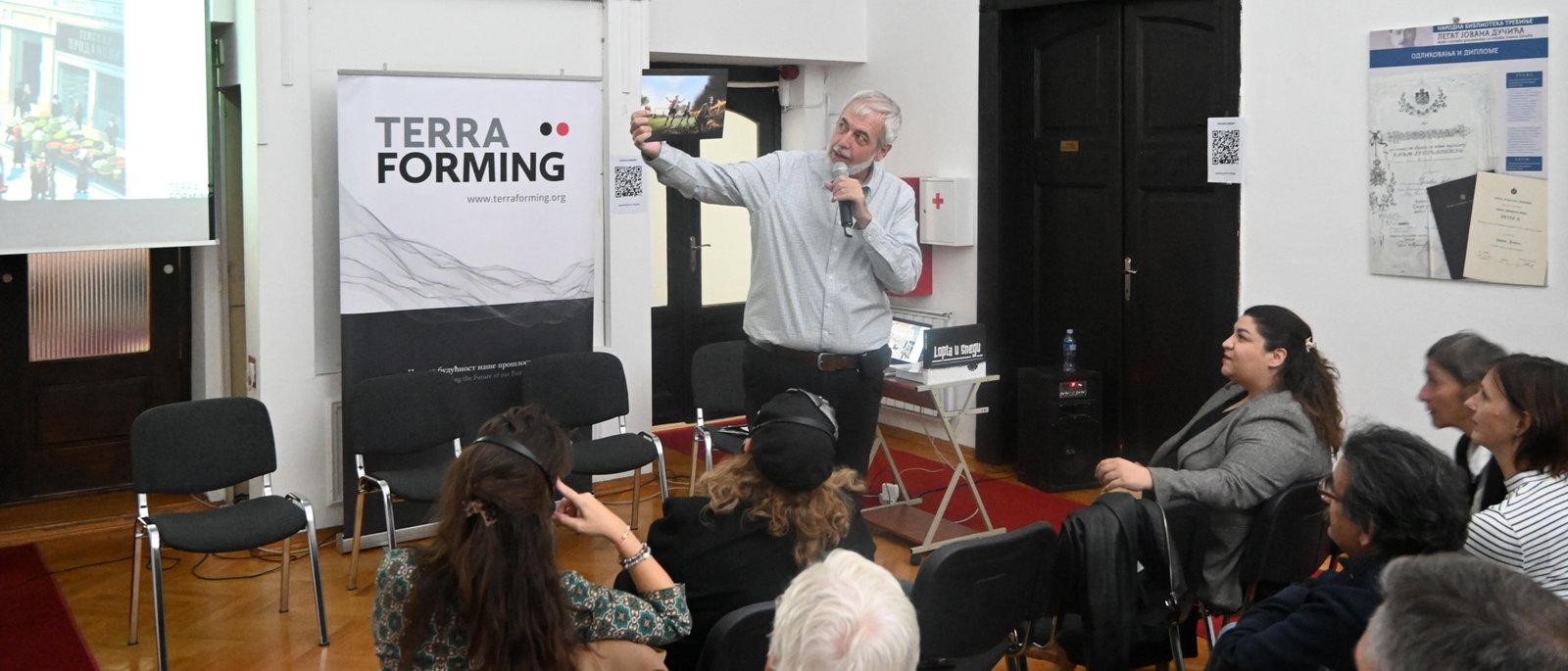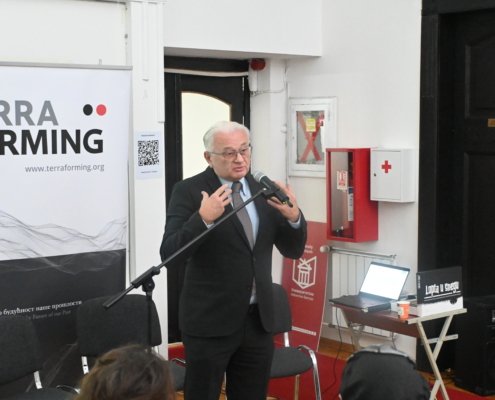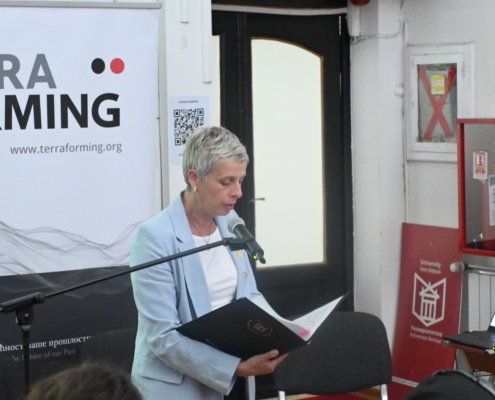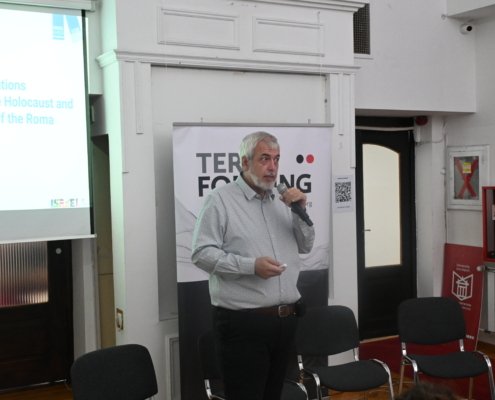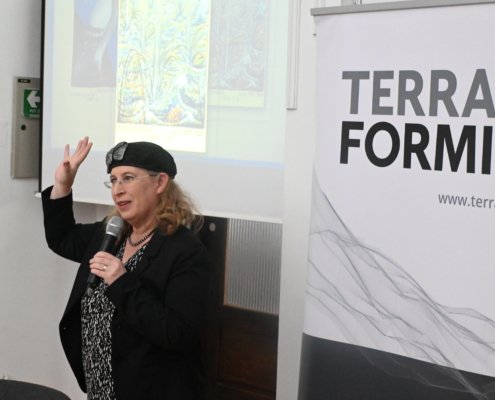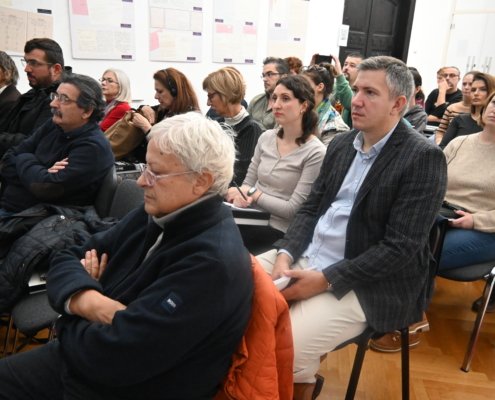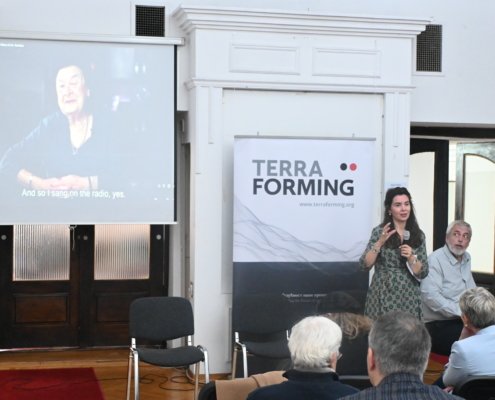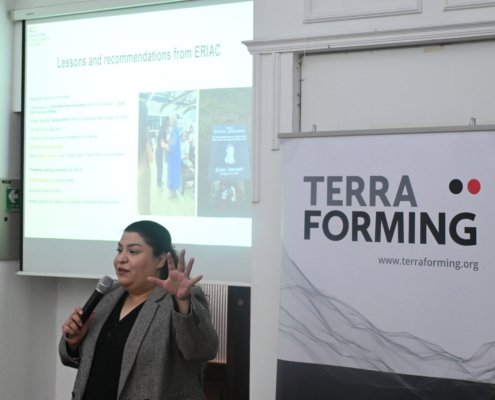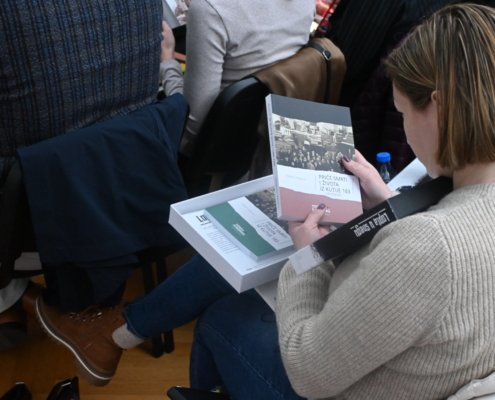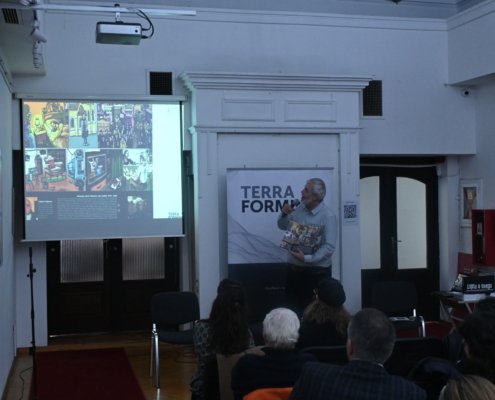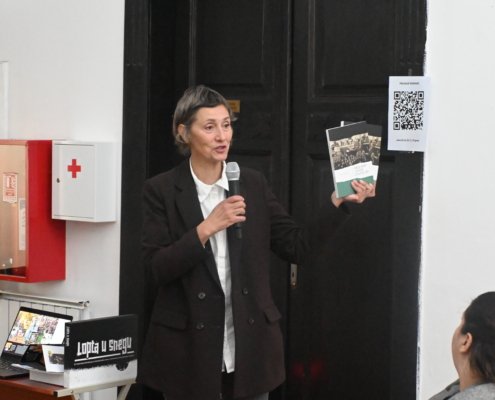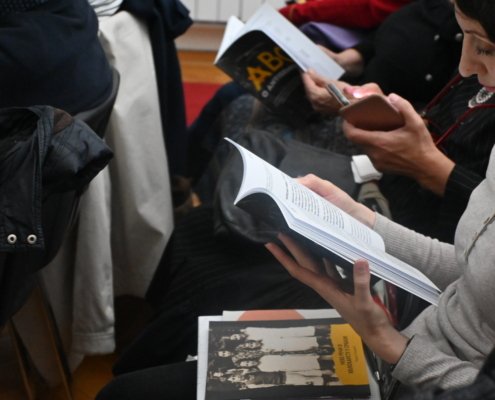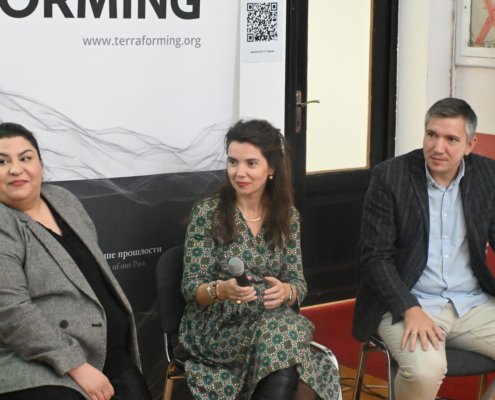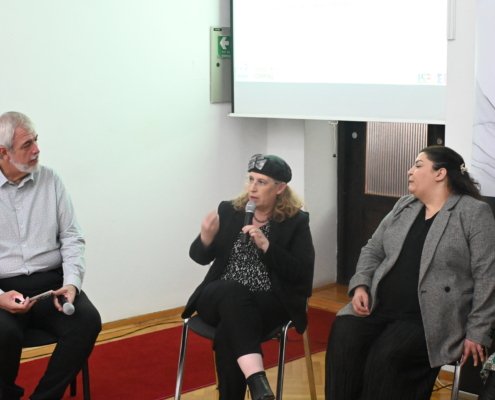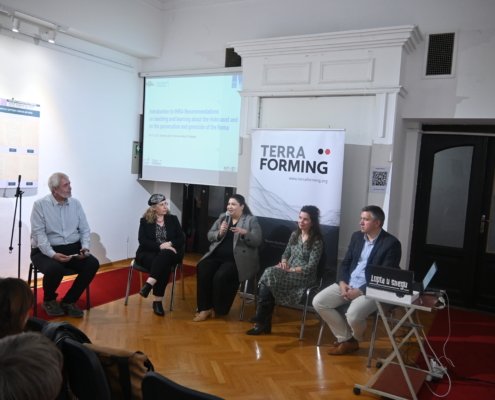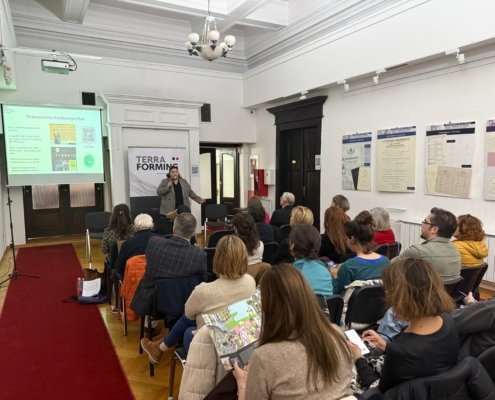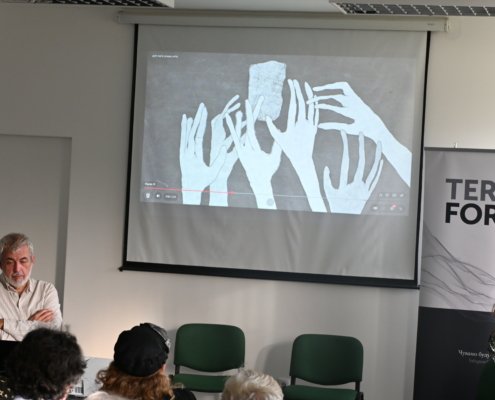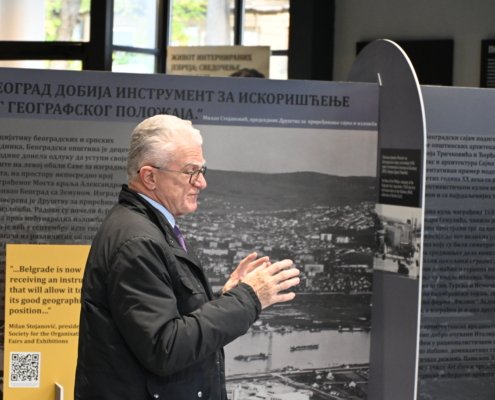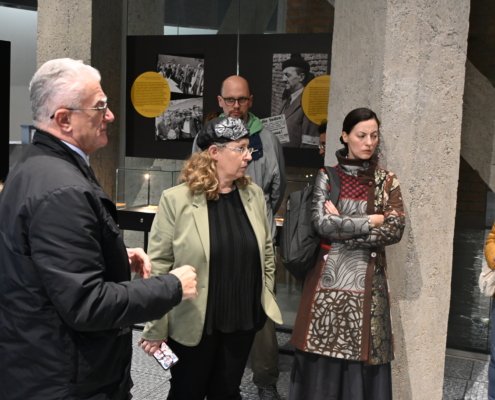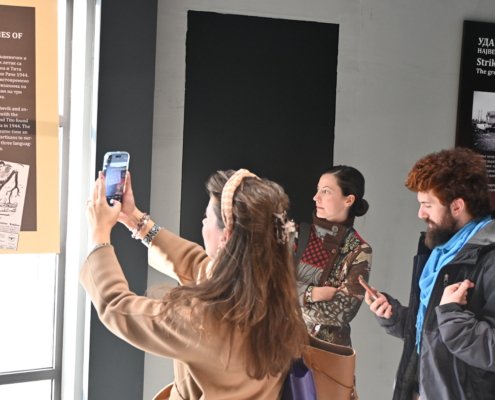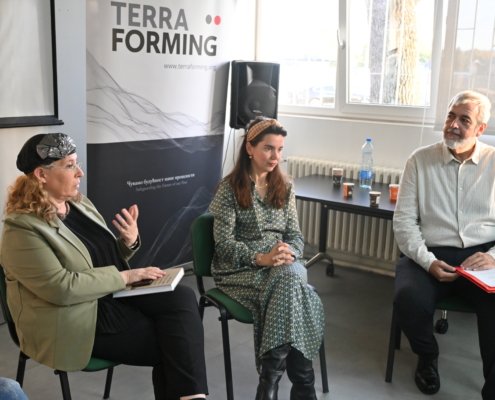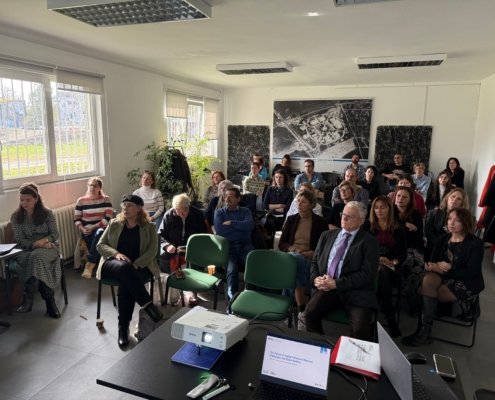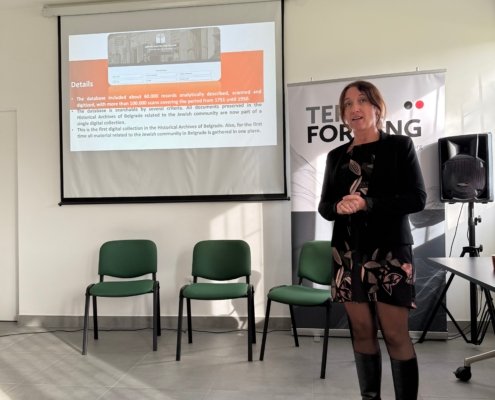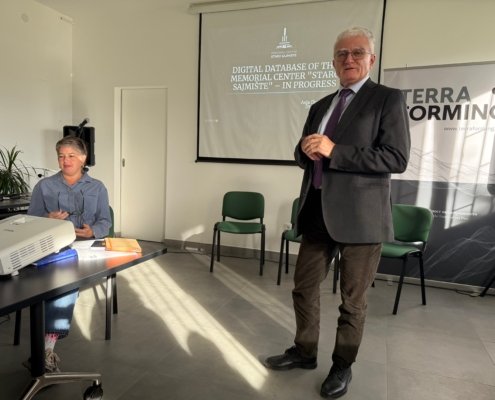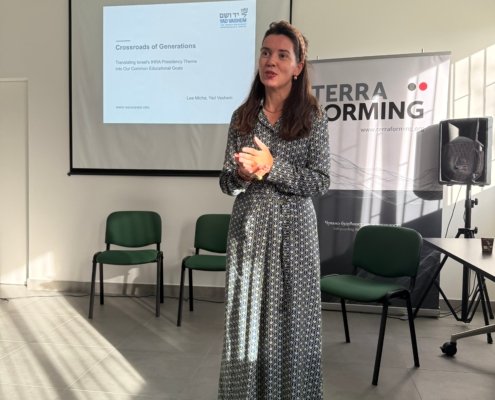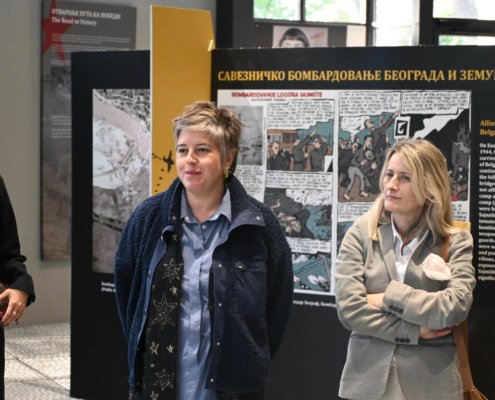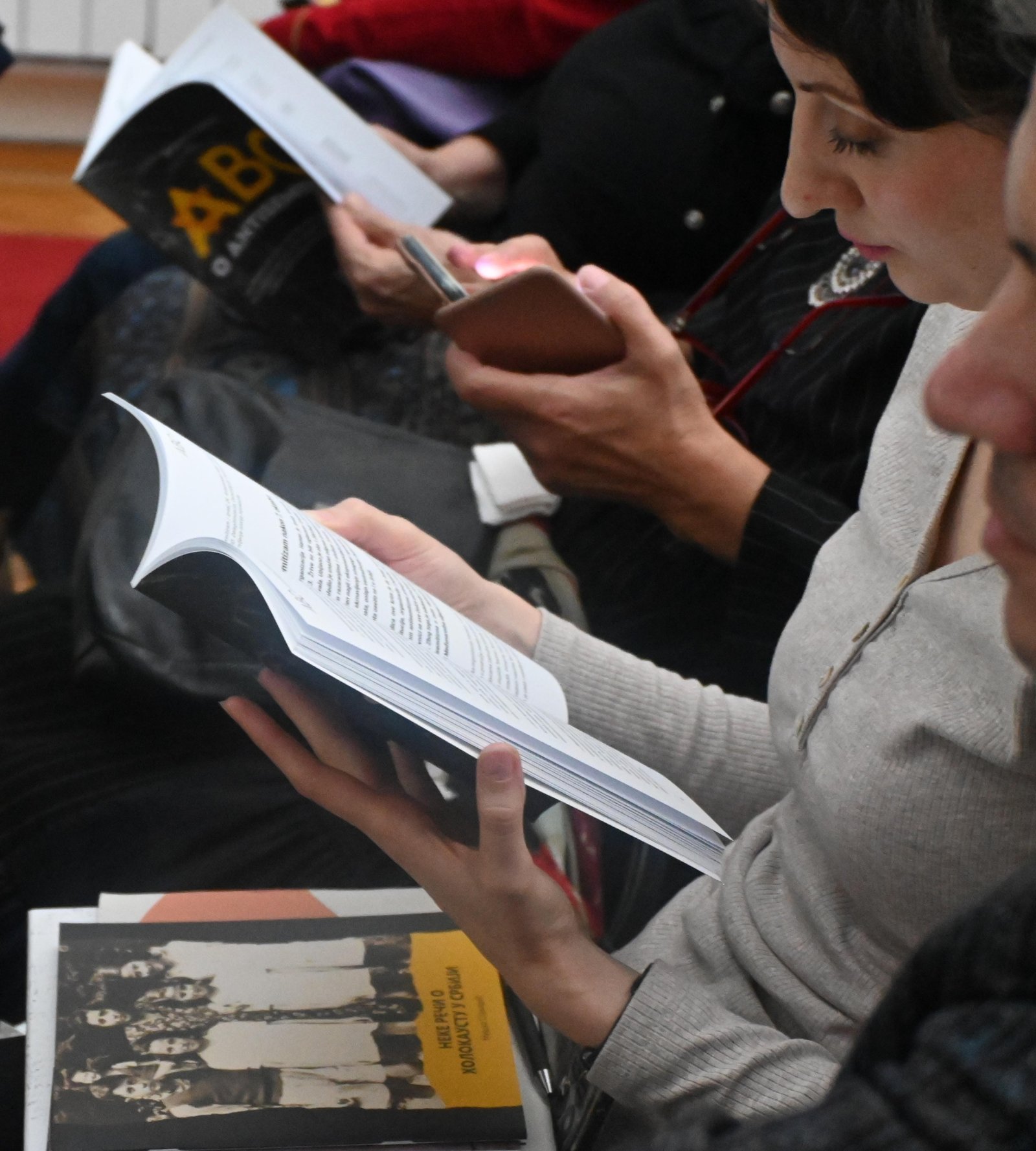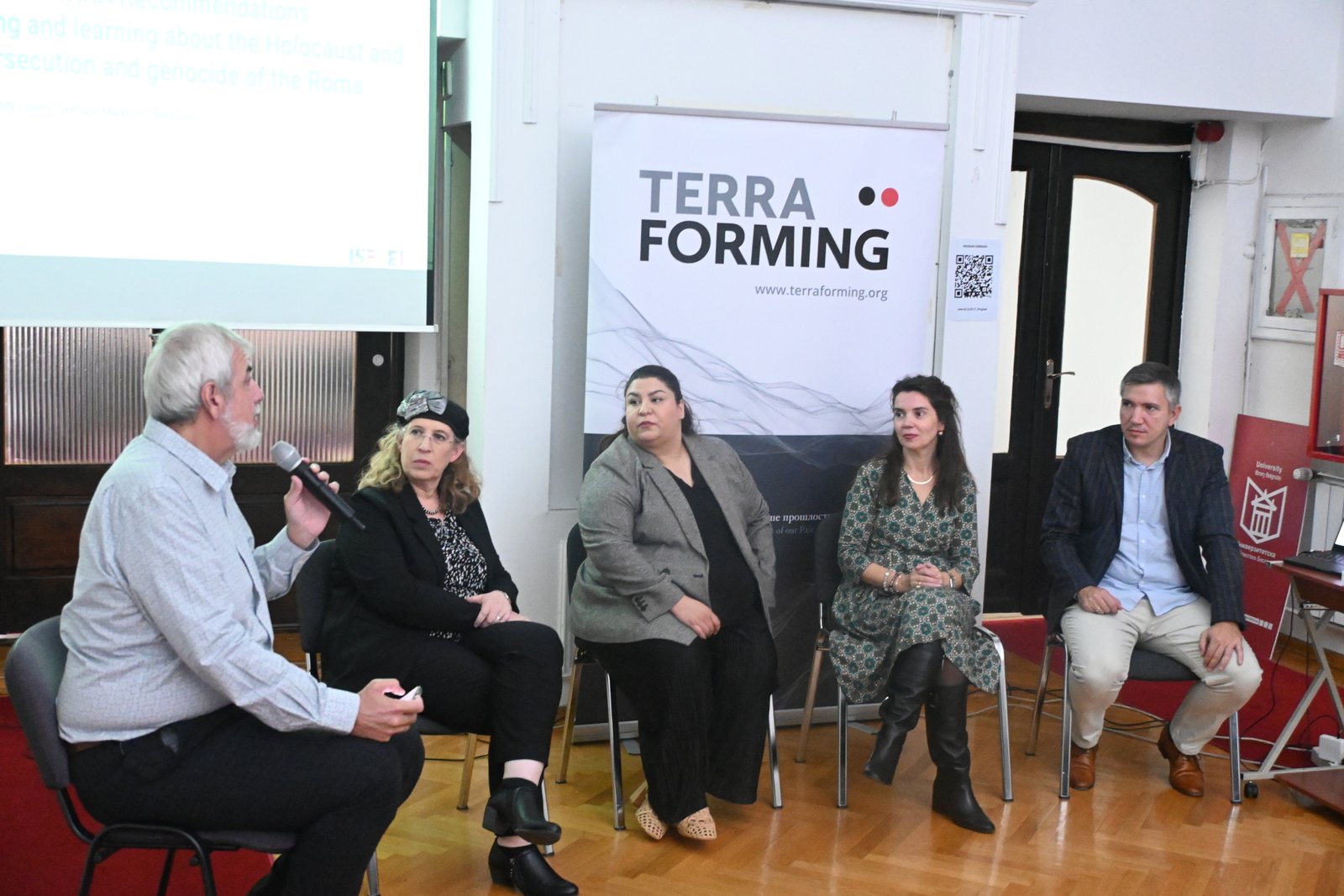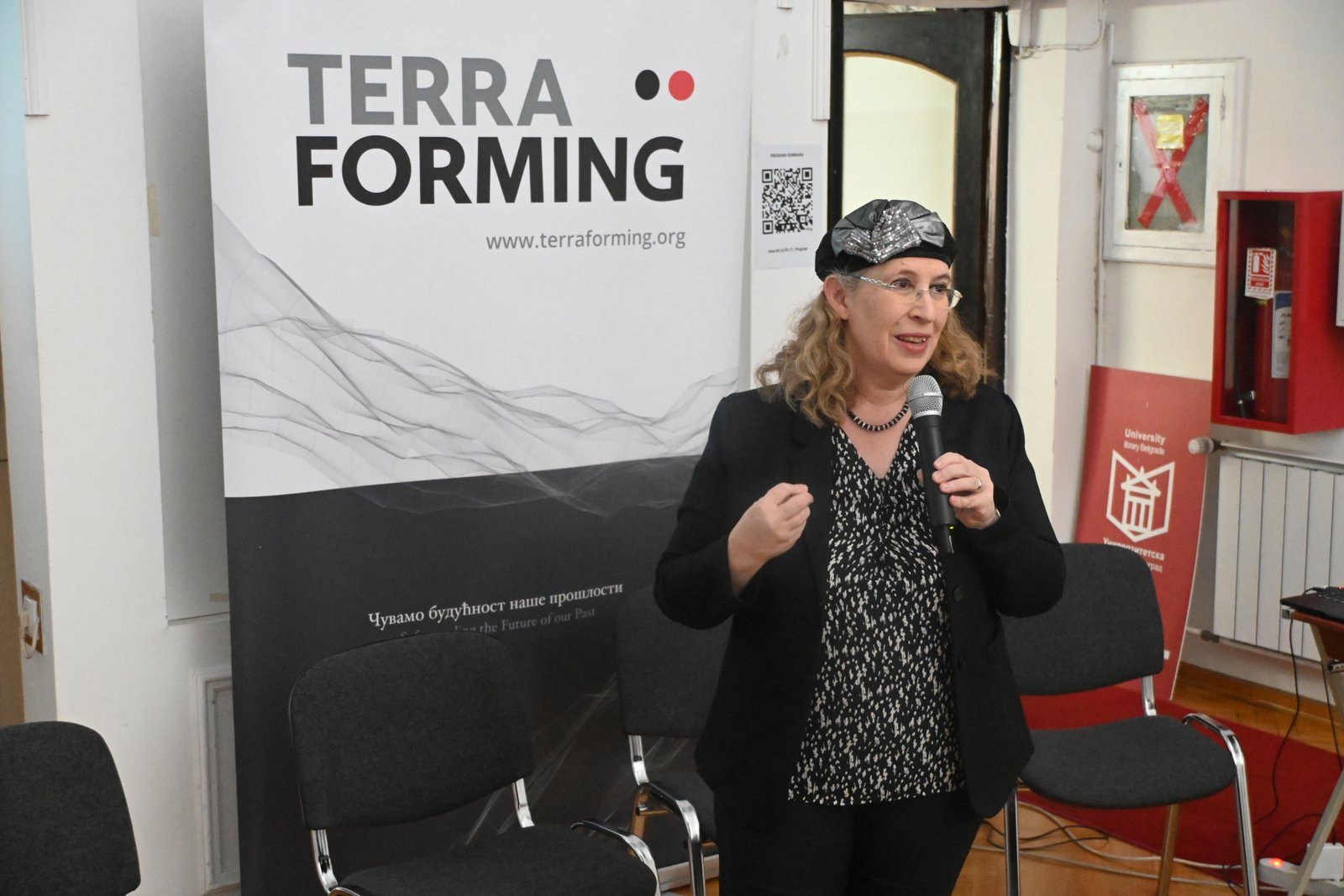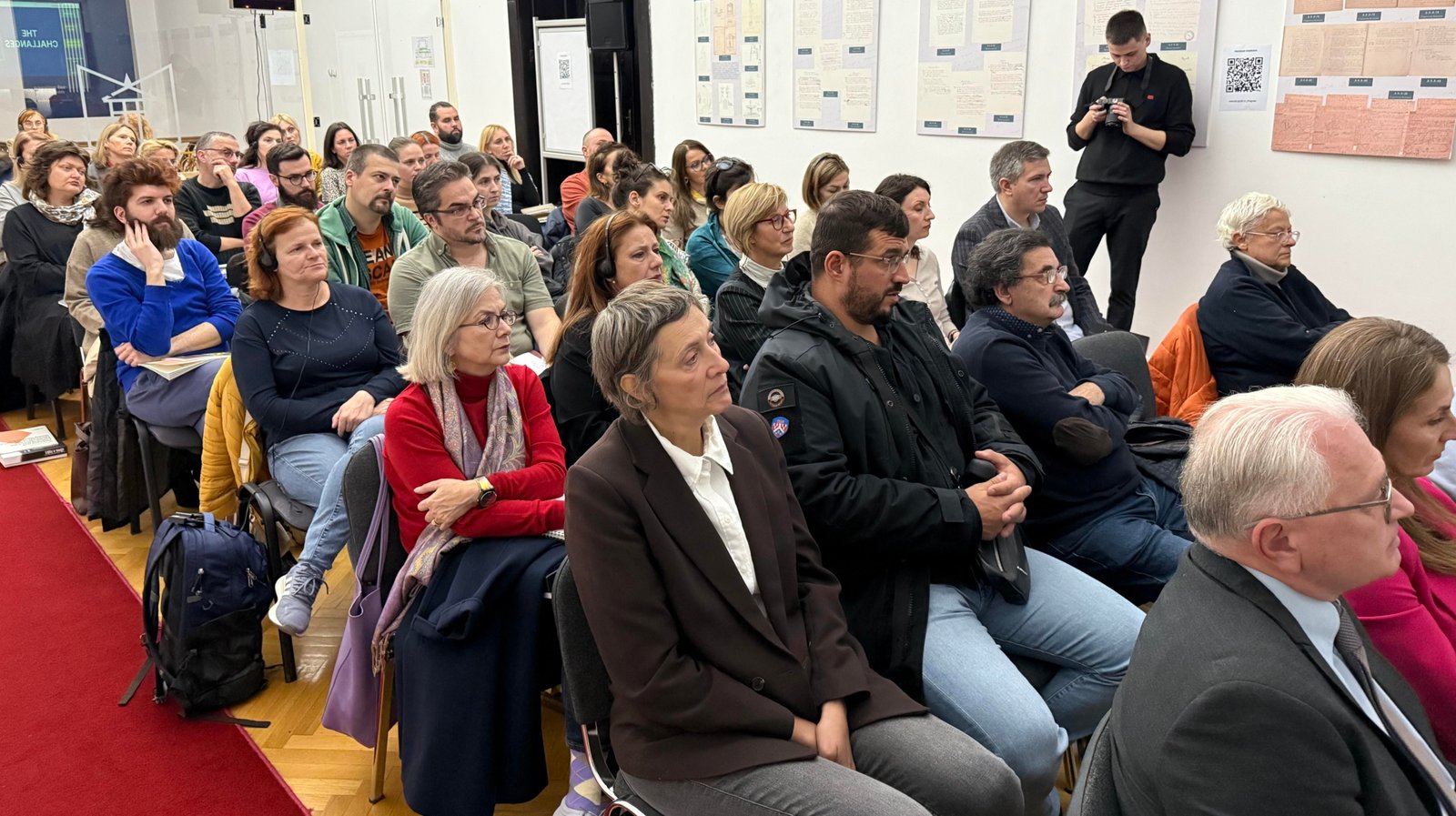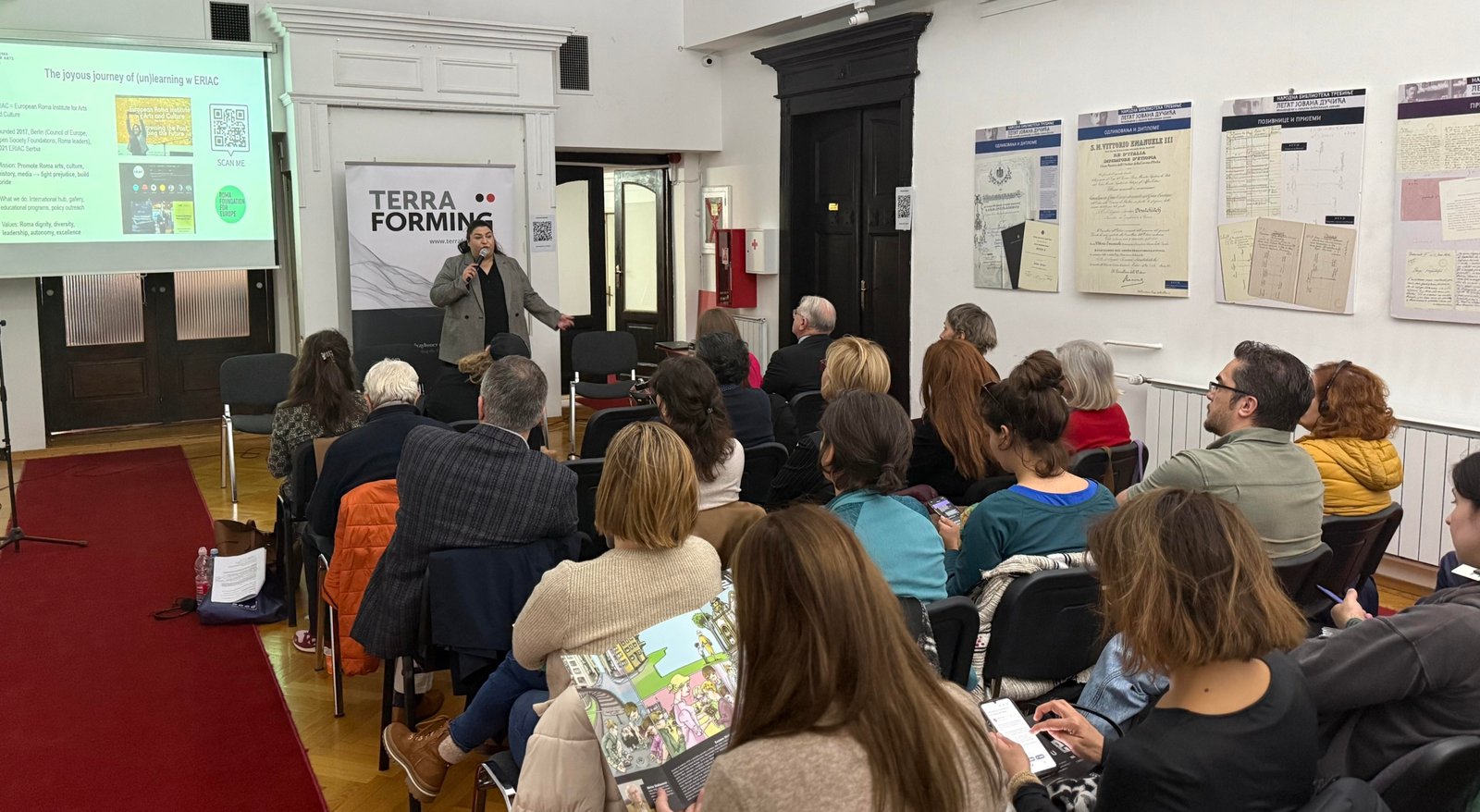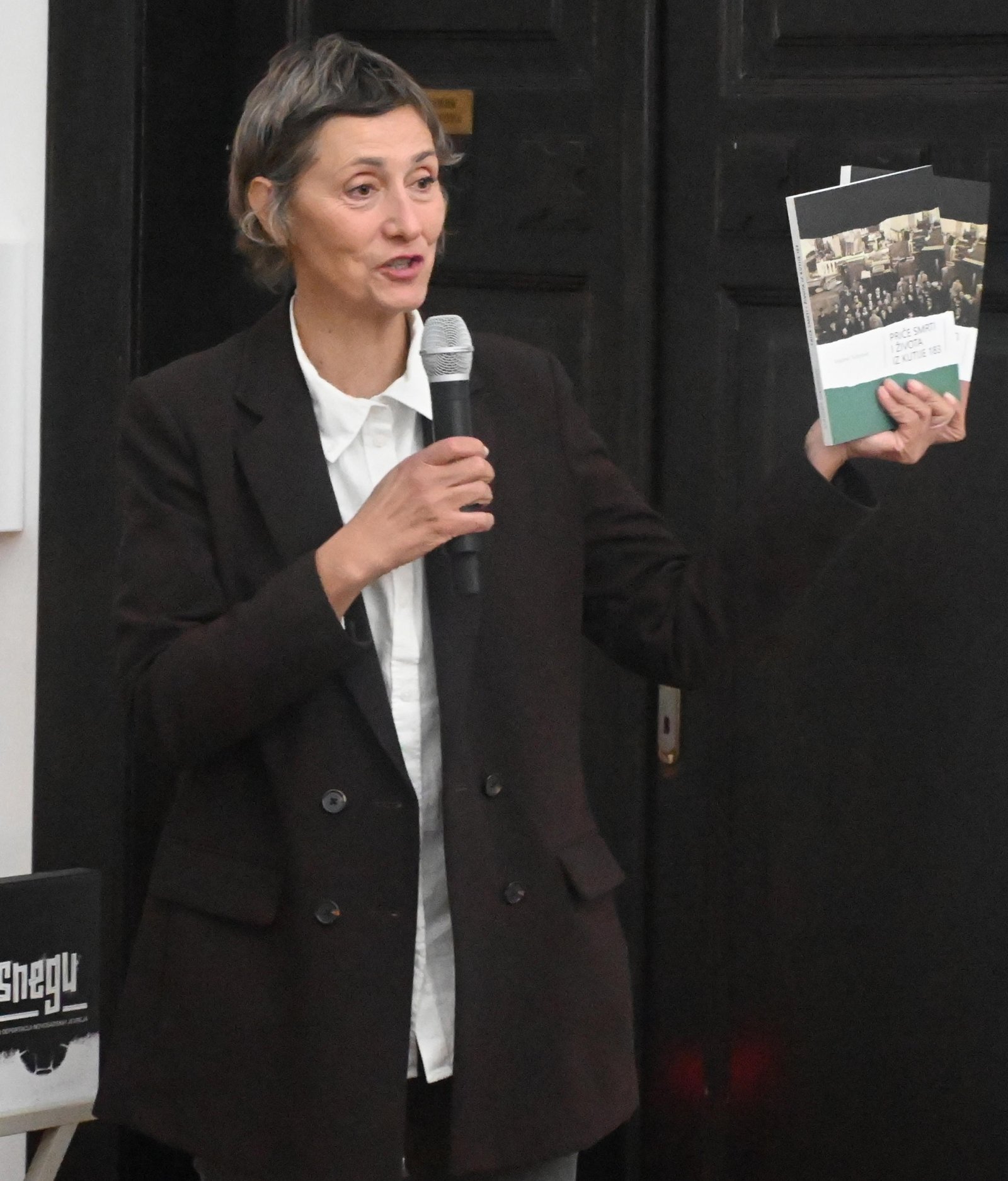Introduction to IHRA Recommendations on Teaching and Learning about the Holocaust and on the Persecution and Genocide of the Roma
Two Days Dedicated to Strengthening Holocaust Education in Belgrade
Terraforming organized two major educational events on October 21 and 22, 2025, in Belgrade, bringing together experts, educators, archivists, museum workers, librarians, and other stakeholders from Serbia and Israel to strengthen Holocaust education, promote inclusive memory culture, and showcase new teaching materials.
Held at the University Library “Svetozar Marković” on October 21 and the Memorial Center “Staro Sajmište” on October 22, the programs were conducted in cooperation with Yad Vashem and the Israeli Presidency of the International Holocaust Remembrance Alliance (IHRA), with the support of the Embassy of Israel in Belgrade.
The events primarily aimed to present the IHRA Recommendations for Teaching and Learning about the Holocaust and the IHRA Recommendations on Teaching and Learning about the persecution and genocide of the Roma to Serbian memory professionals and decision makers.
IHRA Recommendations in Focus: Standards for Teaching about the Holocaust and the Genocide of the Roma
The seminar on October 21 at the University Library “Svetozar Marković”,” Introduction to IHRA Recommendations on Teaching and Learning about the Holocaust and on the Persecution and Genocide of the Roma, focused on introducing internationally acknowledged educational standards and methodologies. Dr. Yael Richler-Friedman presented IHRA’s recommendations on Holocaust education, followed by Miško Stanišić, who introduced IHRA’s recommendations on teaching about the persecution and genocide of the Roma. Highlights included insights on inclusive remembrance practices and intergenerational approaches to memory work.
Nadja Greku from ERIAC Serbia contributed a presentation on the importance of meaningful inclusion of Roma voices in education about the genocide of the Roma.
Lea Micha spoke about the Crossroads of Generations – the theme for Israel’s presidency of the IHRA. It signifies the critical moment when the world will soon be without Holocaust survivors, making it urgent to preserve their memory and legacy for future generations,.
New Educational Materials for Schools, Archives, and Museums
Participants were presented with new educational tools developed by Terraforming, including educational graphic materials on the Holocaust in Serbia, with a focus on Novi Sad, A Ball in the Snow; the handbook ABC of Antisemitism; and Connecting Stories, developed in cooperation with the Arolsen Archives. These materials were created with the support of major international partners, including the Conference on Jewish Material Claims Against Germany, the EVZ Foundation, and the German Federal Foreign Office.
Panel on Contemporary Antisemitism and Post–October 7 Challenges
A panel discussion examined contemporary antisemitism and the challenges facing Holocaust education in the aftermath of October 7. Panelists included Dr. Richler-Friedman, Lea Micha, Nadja Greku, and Dr. Aleksandar Stojanović, with Miško Stanišić as moderator. The session closed with reflections on the future of Holocaust memory in Serbia.
The Digital Future of Holocaust Memory
At the Memorial Center “Staro Sajmište” on October 22, attention turned to the evolving field of digital remembrance during the program “The Future of Digital Holocaust Memory: Challenges and Opportunities.” Speakers explored the rapidly changing landscape of archives, museums, and educational practices in digital environments. Case studies included the Jewish Digital Collection of the Historical Archive of Belgrade, presented by Jelena Nikolić and Tijana Kovčić, the Memorial Center “Staro Sajmište” digital database, presented by Dr. Milan Koljanin and Asja Drača, and the latest Terraforming’s educational tools: The Memory Box, Connecting Stories, and ABC on Antisemitism.
The concluding panel gathered our guests from Yad Vashem, Dr. Richler-Friedman and Lea Micha, Tamara Butigan from the National Library of Serbia, and Asja Drača from the Memorial Center “Staro Sajmište” with Miško Stanišić as moderator. The panel discussed the opportunities and risks shaping the digital future of Holocaust remembrance.
Participants of both seminars received complimentary copies of the presented teaching materials and were invited to join follow-up evaluation online sessions hosted by Terraforming and the Arolsen Archives.
Belgrade as a Regional Hub for Inclusive and Future-Oriented Holocaust Remembrance
The programs positioned Belgrade as a vivid regional center in the international efforts to strengthen historical literacy, counter antisemitism, and support inclusive and future-oriented Holocaust remembrance. The discussions laid the groundwork for deeper cooperation across institutions working to safeguard memory in both physical and digital realms.
The events primarily aimed to present the IHRA Recommendations for Teaching and Learning about the Holocaust and the persecution and genocide of the Roma to Serbian memory professionals and decision makers.

